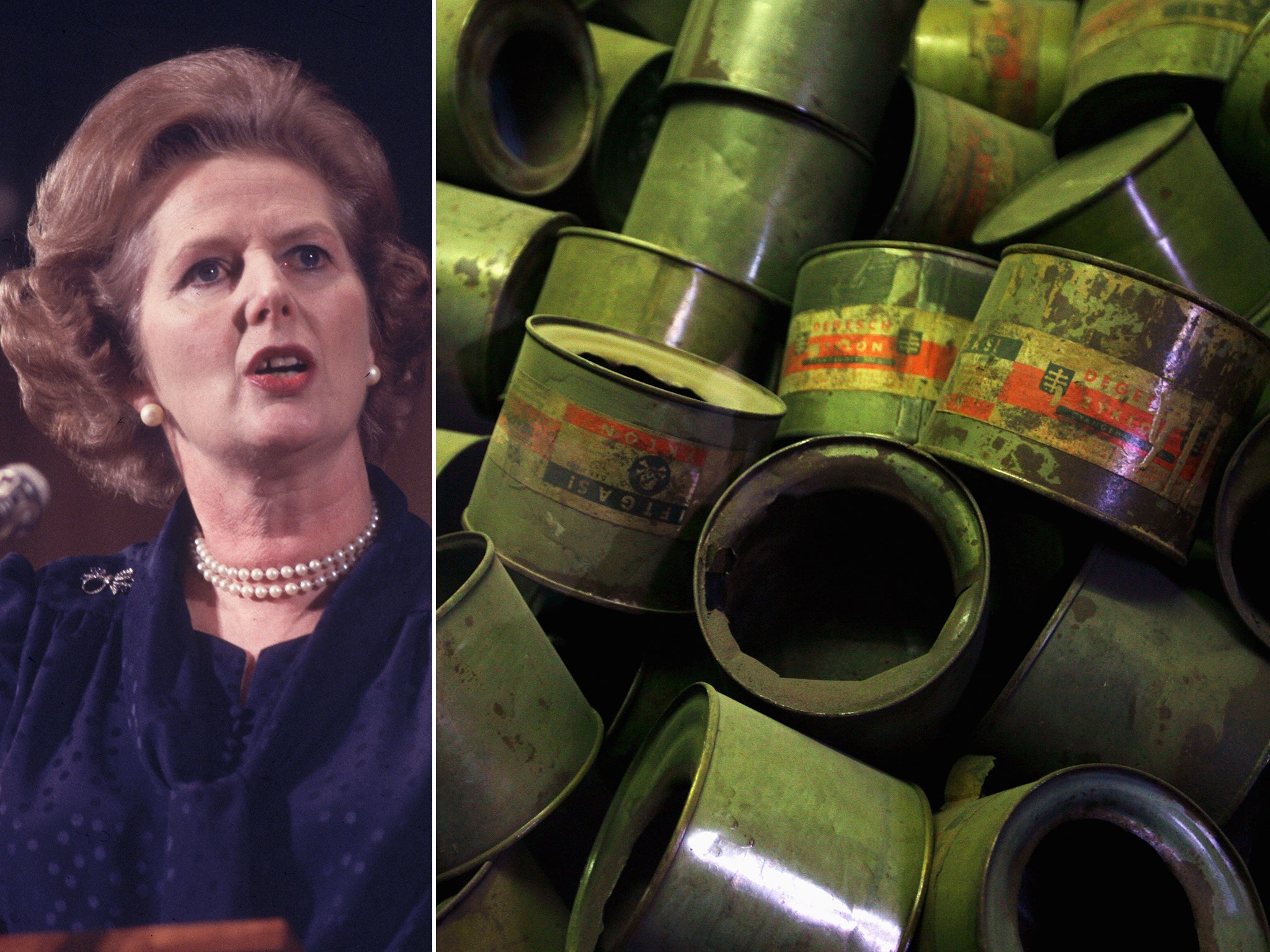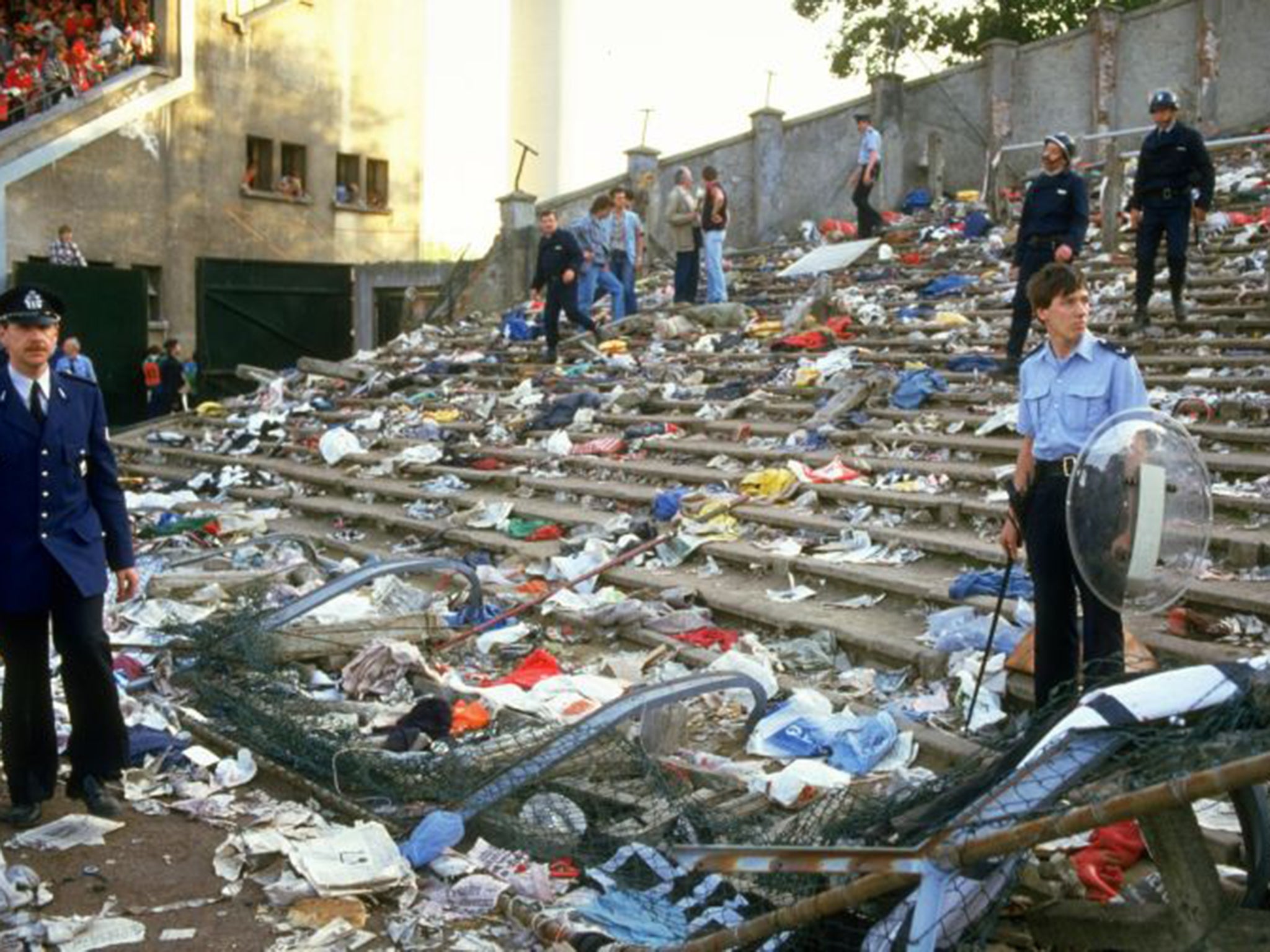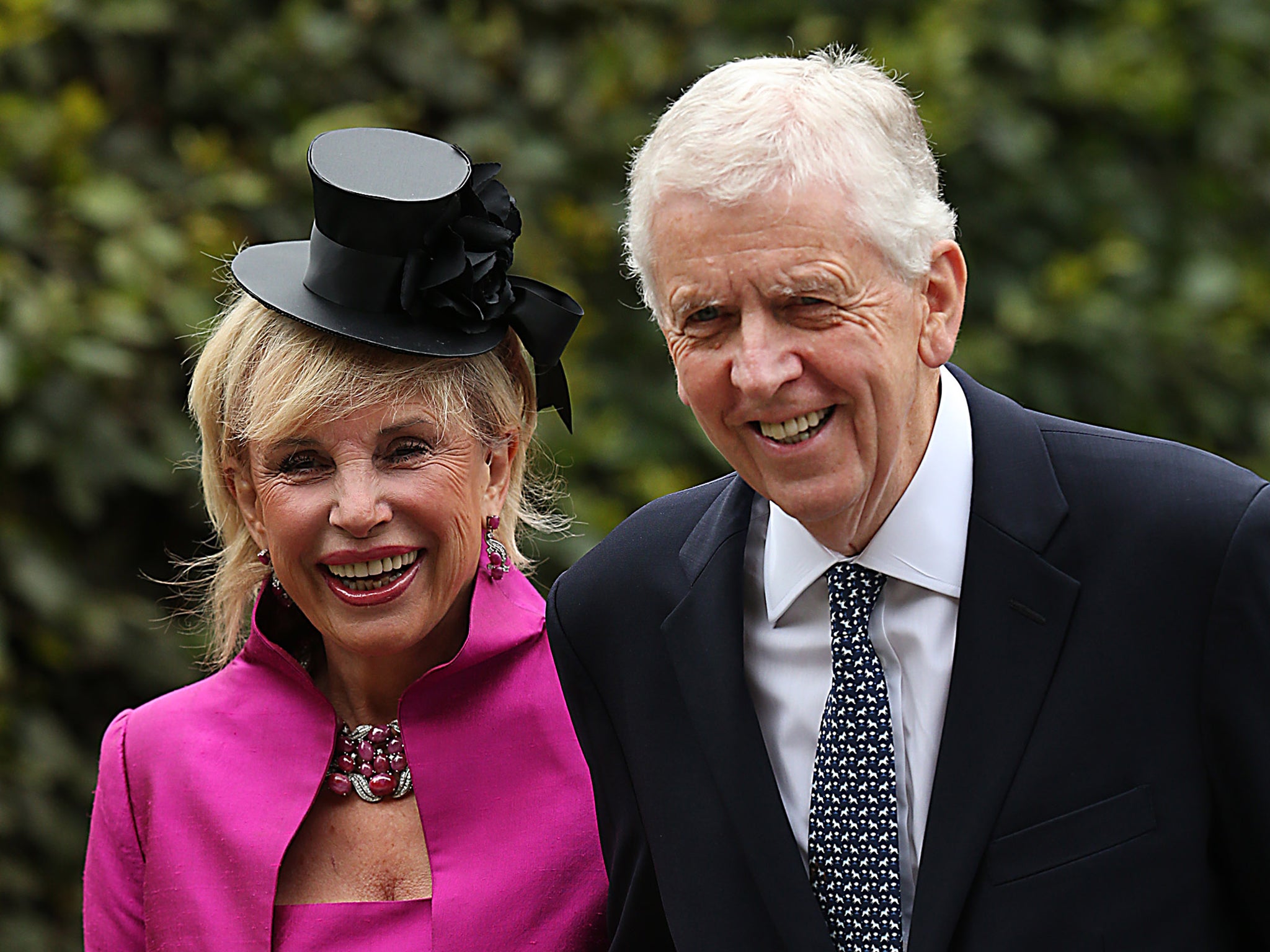Margaret Thatcher secret papers: How former PM nearly rearmed Britain with chemical weapons
Despite Britain’s opposition to using nerve agents, Thatcher considered spending £200m on them

Margaret Thatcher considered re-equipping Britain with chemical weapons at a cost of up to £200m after she was presented with evidence that the Soviet Union was developing a new poison capable of overwhelming Nato forces.
Top-secret documents released today reveal that while Britain had disavowed chemical agents and destroyed its stocks, the Thatcher government looked into acquiring a substantial new arsenal of the weapons of mass destruction amid renewed tensions with Moscow in 1984.
The Prime Minister is recorded by her foreign policy adviser Charles Powell as saying that she and her ministers ran the risk of being considered “negligent” if they failed to rearm the United Kingdom with chemical agents.
The highly sensitive discussions took place following intelligence reports that the Soviet Union not only vastly outgunned Nato forces in terms of chemical weapon reserves – its stocks of nerve gas alone were put at 300,000 tons – but was also working on a new “penetrating agent” against which British and other allied forces had no defence.

The debate sat awkwardly with Britain’s publicly declared stance on chemical weapons after it unilaterally gave up its chemical weapons capability in the 1950s and underlined its adhesion to the Geneva Protocol banning the use of such materials.
By late 1984, military chiefs had grown increasingly alarmed that the Warsaw Pact had built up a significant advantage over the West with factories in Russia capable of producing 12,000 tons of nerve agent such as sarin.
Only the United States maintained any stocks of chemical weapons but its “limited and ageing” arsenal consisted of just 31,000 tons, according to the documents released at the National Archives in Kew, west London.
The revelation that Moscow was pouring considerable resources into developing new agents, among them a new substance “capable of defeating all Nato respirators including the British one”, prompted advisers to Mrs Thatcher to warn that the UK urgently needed a revised strategy. A briefing provided to Mrs Thatcher, which carried the “Secret – UK eyes” designation, stated bluntly: “We are convinced that a new and serious CW [chemical weapon] threat exists.”

Among the detailed options put forward to ministers was the acquisition of “an independent UK retaliatory capability” developed either by British scientists or purchased from the US.
The document stated: “On the assumption that no new and dedicated delivery systems would be required, the cost of setting up UK production facilities for chemical agents would [be] broadly in the order of £100m to £200m.”
The records do not reveal how far the proposal got. But a memo from Mr Powell following a discussion attended by ministers including the Defence Secretary Michael Heseltine and Foreign Secretary Geoffrey Howe shows the Prime Minister far from dismissed it out of hand.
While her colleagues warned of the “political difficulties”, the Prime Minister suggested there was a strong case in favour of such a move. Mr Powell wrote: “The Prime Minister said that it might be argued that it was negligent of the government not to acquire a CW capacity.”
The proposal was part of a wider debate of what tools would be necessary adequately to defend Britain while also pushing Moscow towards an international treaty banning the production as well as the use of chemical weapons. The Chemical Weapons Convention was eventually signed in 1993 and entered into force four years later.
The debate coincided with the construction by a British company of a chemical plant in Iraq which subsequently became a suspected key component in the Saddam Hussein’s chemical warfare production chain.
The Trade and Industry Department approved the contract for the construction of a chlorine plant and then concealed it from Washington despite an admission from Whitehall officials that there was a “strong possibility” it would be used to make mustard gas.
Join our commenting forum
Join thought-provoking conversations, follow other Independent readers and see their replies
Comments
Bookmark popover
Removed from bookmarks